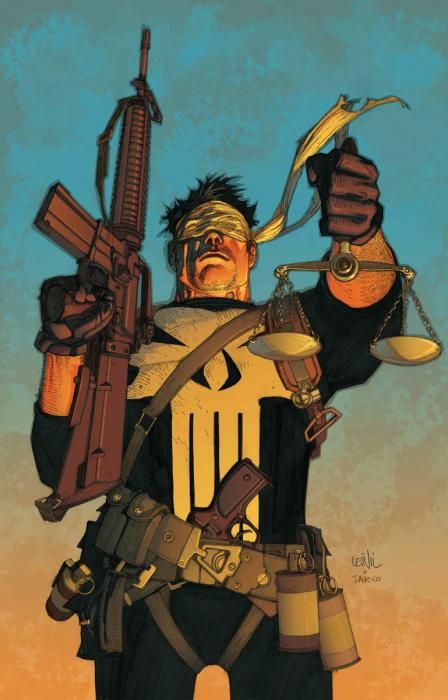As writer Marc Guggenheim observes in "The Trial of the Punisher" #1 backmatter, The Punisher has been to prison, but rarely has he seen the inside of a courtroom. In the debut issue of this miniseries, Guggenheim and artist Leinil Francis Yu finally give Frank Castle the chance to be judged.
As expected, there's more going on here than it initially seems. The story begins with the Punisher turning himself in, and naturally that course of action puts question marks over everything he does afterwards. Readers are left guessing until the final pages what he might actually be up to (if anything) and what might have caused his apparent change of heart. Suffice to say, it's a gripping mystery.
Guggenheim's writing is also hugely enjoyable. As a lawyer, he has a clear understanding of legal process which helps this be as much a thought-experiment as it is a story. The character is the center of the story, make no mistake, but the activity around him is what makes this book feel new and interesting, rather than just another Punisher story. The only down side is Guggenheim's tendency to get scatological, which happens slightly too often to be funny, and feels out of step with the book's overall tone.
As penciller, Yu's work is fantastic. He sells Frank as an imposing physical presence and although Yu has become known for cramming huge numbers of characters into scenes, it's impressive what he can do with individuals who have a little space to breath. His pages are normally full to overflowing, but here there's a slow and deliberate pace to his work in this story which complements and reflects the character's mentality.
The lack of action sequences might put off some Punisher fans, but it's not entirely without drama, and Guggenheim uses a variety of flashbacks to prevent the issue becoming a parade of talking heads. It's natural to want to see Yu cut loose, as he often does, but it's good to see him doing something different. He sells the Punisher as noir, rather than superhero.
In fact, at two issues, this almost feels as though it'll be over too soon. This kind of mystery could be strung out into an 8-issue mini, and in some ways it would have benefitted from extra space. On the other hand, as a graphic novella it has a lot of potential to endure. Get in, get out and leave no room for error. In that sense -- and the fact that it has no overt ties to continuity -- it feels like an instant classic. As long as Guggenheim can stick the landing with the resolution, there's no reason it can't become one of the definitive Punisher stories.

